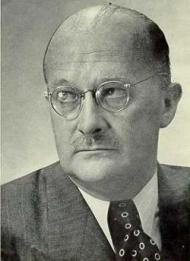Christmas (Old English: Crīstesmæsse, meaning "Christ's Mass") is an annual commemoration of the birth of Jesus Christ and a widely observed cultural holiday, celebrated generally on December 25 by billions of people around the world. A feast central to the Christian liturgical year, it closes the Advent season and initiates the twelve days of Christmastide, which ends after the twelfth night. Christmas is a civil holiday in many of the world's nations, is celebrated by an increasing number of non-Christians, and is an integral part of the Christmas and holiday season.
While the birth year of Jesus is estimated among modern historians to have been between 7 and 2 BC, the exact month and day of his birth are unknown. His birth is mentioned in two of the four canonical gospels. By the early-to-mid 4th century, the Western Christian Church had placed Christmas on December 25, a date later adopted in the East, although some churches celebrate on the December 25 of the older Julian calendar, which corresponds to January in the modern-day Gregorian calendar. The date of Christmas may have initially been chosen to correspond with the day exactly nine months after early Christians believed Jesus to have been conceived, or with one or more ancient polytheistic festivals that occurred near southern solstice (i.e., the Roman winter solstice); a further solar connection has been suggested because of a biblical verse identifying Jesus as the "Sun of righteousness".
The celebratory customs associated in various countries with Christmas have a mix of pagan, pre-Christian, Christian, and secular themes and origins. Popular modern customs of the holiday include gift giving, Christmas music and caroling, an exchange of Christmas cards, church celebrations, a special meal, and the display of various Christmas decorations, including Christmas trees, Christmas lights, nativity scenes, garlands, wreaths, mistletoe, and holly. In addition, several closely related and often interchangeable figures, known as Santa Claus, Father Christmas, Saint Nicholas, and Christkind, are associated with bringing gifts to children during the Christmas season and have their own body of traditions and lore. Because gift-giving and many other aspects of the Christmas festival involve heightened economic activity among both Christians and non-Christians, the holiday has become a significant event and a key sales period for retailers and businesses. The economic impact of Christmas is a factor that has grown steadily over the past few centuries in many regions of the world.
Etymology
"Christmas" is a compound word originating in the term "Christ's Mass". It is derived from the Middle English Cristemasse, which is from Old English Crīstesmæsse, a phrase first recorded in 1038 followed by the word Cristes-messe in 1131. Crīst (genitive Crīstes) is from Greek Khrīstos (Χριστός), a translation of Hebrew Māšîaḥ (מָשִׁיחַ), "Messiah", meaning "anointed"; and mæsse is from Latin missa, the celebration of the Eucharist. The form "Christenmas" was also historically used, but is now considered archaic and dialectal; it derives from Middle English Cristenmasse, literally "Christian mass". "Xmas" is an abbreviation of Christmas found particularly in print, based on the initial letter chi (Χ) in Greek Khrīstos (Χριστός), "Christ", though numerous style guides discourage its use; it has precedent in Middle English Χρ̄es masse (where "Χρ̄" is an abbreviation for Χριστός).
Other names
In addition to "Christmas", the holiday has been known by various other names throughout its history. The Anglo-Saxons referred to the feast as "midwinter", or, more rarely, as Nātiuiteð (from Latin nātīvitās below). "Nativity", meaning "birth", is from Latin nātīvitās. In Old English, Gēola ("Yule") referred to the period corresponding to January and December, which was eventually equated with Christian Christmas. "Noel" (or "Nowell") entered English in the late 14th century and is from the Old French noël or naël, itself ultimately from the Latin nātālis (diēs), "(day) of birth".
History
The Chronography of 354 AD contains early evidence of the celebration on December 25 of a Christian liturgical feast of the birth of Jesus. This was in Rome, while in Eastern Christianity the birth of Jesus was already celebrated in connection with the Epiphany on January 6. The December 25 celebration was imported into the East later: in Antioch by John Chrysostom towards the end of the 4th century, probably in 388, and in Alexandria only in the following century. Even in the West, the January 6 celebration of the nativity of Jesus seems to have continued until after 380. In 245, Origen of Alexandria, writing about Leviticus 12:1–8, commented that Scripture mentions only sinners as celebrating their birthdays, namely Pharaoh, who then had his chief baker hanged (Genesis 40:20–22), and Herod, who then had John the Baptist beheaded (Mark 6:21–27), and mentions saints as cursing the day of their birth, namely Jeremiah (Jeremiah 20:14–15) and Job (Job 3:1–16). In 303, Arnobius ridiculed the idea of celebrating the birthdays of gods, a passage cited as evidence that Arnobius was unaware of any nativity celebration. Since Christmas does not celebrate Christ's birth "as God" but "as man", this is not evidence against Christmas being a feast at this time. The fact the Donatists of North Africa celebrated Christmas may indicate that the feast was established by the time that church was created in 311.
Many popular customs associated with Christmas developed independently of the commemoration of Jesus' birth, with certain elements having origins in pre-Christian festivals that were celebrated around the winter solstice by pagan populations who were later converted to Christianity. These elements, including the Yule log from Yule and gift giving from Saturnalia, became syncretized into Christmas over the centuries. The prevailing atmosphere of Christmas has also continually evolved since the holiday's inception, ranging from a sometimes raucous, drunken, carnival-like state in the Middle Ages, to a tamer family-oriented and children-centered theme introduced in a 19th-century reformation. Additionally, the celebration of Christmas was banned on more than one occasion within certain Protestant groups, such as the Puritans, due to concerns that it was too pagan or unbiblical.

